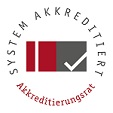Crop Sciences (Master’s)
Cultivated Plants for the Future
Crop Sciences (Master’s)
Cultivated Plants for the Future
Crop scientists are developing cultivation systems that are both high-yielding and ecologically sustainable.
The Master's degree program in Crop Sciences therefore trains students for scientific activities in research institutions as well as in the private sector and offers a sound methodological and biotechnological education for prospective crop scientists.
- Specialization option in “Plant Breeding and Seed Science” or “Plant Nutrition and Plant Protection”
- Optimal research infrastructure for crop science
- Practical experience at the Agricultural Experiment Station and the State Plant Breeding Institute
- Reasons to Choose Hohenheim
| Degree Master of Science (M.Sc.) |
4 semesters 120 credits |
Language English |
University places 30 |
Location Stuttgart |
|||||
You can find information on the individual modules in the module descriptions.
In the first academic year
you can choose between two specializations:
- Plant Breeding and Seed Science
In this specialization, you will gain in-depth knowledge of traditional and modern seed breeding methods as well as biometric evaluation methods.
The seven compulsory modules are spread over the first two semesters, giving you the opportunity to delve deeper into the topic of your choice in the third semester or to spend a semester abroad. In addition, eight elective modules allow you to create an individual profile according to your career aspirations and interests.
- Plant Nutrition and Protection
This specialization conveys knowledge of molecular biology, biotechnology, physiology, and plant nutrition as well as strategies of plant protection. You will also look at the development of biotechnological approaches and management practices to produce plants with higher yields and high quality.
In this specialization, the compulsory modules are held exclusively in the first semester. This allows you to design your studies flexibly in the second and third semesters by freely choosing modules from a range of over 260 modules offered by the Faculty of Agricultural Sciences.
In the second year of studies,
the Master's thesis is also completed according to your chosen specialization.
The scientific infrastructure combined with the practical opportunities to carry out experiments at the Agricultural Experiment Stations and in the State Plant Breeding Institute offer optimal conditions to students.
Program objectives
Students in this Master's program are introduced to methodical, biological, physiological, molecular-genetic, and biometric principles.
The goal of the program is to increase the efficiency of arable crops and cultivation systems regarding the transformation of light and additional resources into
- food
- feed
- and renewable raw materials.
In the face of a growing world population and limited availability of farmland, achieving this goal remains a key challenge. After completing this Master’s program, you will be able to develop independent approaches to address various problems in modern plant breeding, crop biotechnology, and plant production systems. This requires a broad-based understanding of a wide range of issues including basic biology, physiology, ecology, bioinformatics, and expert systems.
What you should bring with you
If you have a solid knowledge of Plant Physiology and Plant Breeding as well as a good foundation in statistics and computer applications, you've come to the right place!
The formal requirements for the Master's program are:
- Bachelor’s degree in Agricultural Sciences, Natural Sciences, or a related program at a university in Germany or abroad or at a university of applied sciences with a standard period of study of at least 3 years (totaling 180 ECTS credits) (for the “related degree programs,” see Annex 2 of the Admission Regulations)
- If your final grade or grade point average for your degree is not above average, you have to show proof of special aptitude for the degree program (for details see Admission Regulations § 4).
- Demonstrated English proficiency at the level TOEFL 90 (internet based). English proficiency may also be proven by the German university entrance qualification (HZB) if at least four semesters of English were taken in the higher level (Oberstufe) with an average grade of at least 8 points, excluding a separate Abitur examination.
- Result of the Crop Sciences pre-test
You should have the following interests and knowledge in addition to the formal criteria:
- Sound knowledge of plant physiology and plant breeding
- Good foundation in statistics and computer applications
- Team spirit and willingness to work in intercultural teams
- Experience abroad
Scientific research right from the start
Learn modern, relevant laboratory techniques for working on crops in compulsory and elective modules.
Gaining practical experience
You can integrate an internship, e.g., in a fertilizer company, a plant breeding company, or a government agency into your degree program via the portfolio module as an elective module, or even use it to collect data for your Master's thesis. The program lecturers are happy to help you find these kinds of opportunities.
Expanding competences
You will find additional further education opportunities on campus in the form of the F.I.T continuing education courses, the “Artificial Intelligence and Data Science in Hohenheim” (AIDAHO) certificate, or the start-up support in the “Innovation Greenhouse”.
Learning from practice
The degree program offers you numerous opportunities for practical learning. Lectures by experts from outside the university, contact with alumni from your degree program, inspiring excursions, and applied examples in your studies give you a direct insight into professional practice and promote your ability to actively apply the knowledge you have learned.
Strengthening language and intercultural skills
Would you like to acquire further language skills? For this purpose, the Language Center at the University of Hohenheim offers various semester and intensive courses that you can take individually during your studies. You can even acquire the UniCert III C1 certificate as part of an elective module. During your studies, you will also acquire intercultural skills naturally by interacting with your fellow students from all over the world.
Researching during your studies
During your studies, you will have the opportunity to work in research projects and gain valuable insights into research practice. By actively participating in research projects, student research projects, and specialized research modules, you become part of the scientific process and acquire qualifications for independent scientific work. You can find research topics at: https://agrar.uni-hohenheim.de/en/research0
Students in this Master's program are introduced to methodical, biological, physiological, molecular-genetic, and biometric principles.
The goal of the program is to increase the efficiency of arable crops and cultivation systems regarding the transformation of light and additional resources into
- food for humans
- feed
and renewable resources.
In the face of a growing world population and limited availability of farmland, achieving this goal remains a key challenge. Graduates of this program are capable of developing approaches of their own to address the changing problems in modern crop breeding, crop biotechology, and in plant production systems. This requires a broad-based understanding of a wide range of issues including basic biology, physiology, ecology, bioinformatics, and expert systems.
As a graduate of the Crop Sciences degree program, you will have gained comprehensive knowledge in your specializations, developed skills in critical and solution-oriented thinking, and be well prepared for current research questions in the fields of plant breeding, plant physiology, and plant protection.
Potential fields of employment include:
- Agronomy and seed propogation
- Chemical-pharmaceutical industry
- Service and consulting companies
- Non-governmental organizations
- Public and private research centers
- Agroindustry
It makes sense to complete internships (in Germany or abroad) within the Master's program. The lecturers in the program are happy to help you arrange internships. In addition, the Master's program qualifies students to embark on a doctoral project. Most universities as well as most graduate schools expect above-average performance in the Master's program for this.
Marcus Olatoye Olalere (Nigeria) Graduate 2013
M arcus Olatoye Olalere (Nigeria) Graduate 2013, PhD at Kansas State University:
arcus Olatoye Olalere (Nigeria) Graduate 2013, PhD at Kansas State University:
“Today, I still look back in time and wish I was able to challenge myself more than I did then, because now I realize how invaluable my developmental experience in Hohenheim was. I am proud to call Universität Hohenheim my “Alma Mater”
Linda Homann (Germany) Graduate 2012, Officer for InnovationPromotion, Federal Office for Agriculture and Nutrition:
“I found the international focus very inspiring. The statistical analyses as well as the broad choice of topics were an enrichment.”
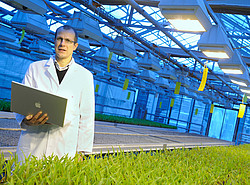
Good reasons to study at the Faculty of Agricultural Sciences in Hohenheim
First Place not Once but Three Times: The current Global Universities Ranking from U.S. News & World Report, the renowned NTU ranking, QS World University Ranking, and dathe Center of World University Ranking put University of Hohenheim’s agricultural research in 1st place in Germany.
In the agricultural university ranking from top agrar, the agricultural students at the University of Hohenheim give the grades 1.5 to 2.0. According to the ranking 2016, 88% of the students surveyed would recommend the University of Hohenheim for agricultural studies.
The University of Hohenheim puts great importance on quality teaching, which is demonstrated by several award-winning reform projects.
These projects include for example mobile teaching (German e-learning innovation and young scientists award (d-elina) in the category “Campus” at the BITKOM) or the ethics module, developed by the student group FRESH and awarded by the UN.
In addition to comprehensive teaching, Hohenheim offers excellent opportunities at experimental stations and laboratories. As a result, hands-on experience and theoretical knowledge are closely connected.

The vision of the Faculty of Agricultural Sciences is a global agricultural system which is productive, environmentally-friendly and socially-minded, and which is in harmony with society’s demand for a multi-purpose orientation.
Agricultural research at the University of Hohenheim is focused on four areas:
- Food for all: Security of global food supply
- Hazard prevention: Climate change and scarcity of resources
- Beyond fossil fuels: Bioenergy and bio-based value-creation networks
- Diversity instead of monoculture: Genome Diversity in Agriculture
There are no easy answers to these kinds of questions. That is why agricultural researchers at the University of Hohenheim work across disciplinary boundaries, collaborating with colleagues in the natural sciences, business administration and economics, and the social sciences, for instance in bioeconomics, a field of research and teaching that will become even more important in the future. That collaboration also has an impact on teaching.
Number 1 in internationalization: In the current EU ranking U-Multirank, the University of Hohenheim has a top spot in internationalization.
The basis for this placing is the decades-long, global commitment of the Agricultural Sciences. Especially our tropics research with 10 professorships has made the University known around the world.
International opportunities for students:
- 80 partner institutions worldwide (40 of which are in the Erasmus+ program)
- Member of the Euroleague for Life Sciences - the network for Europe’s best
- scholarship programs for travel, research, and exchange
- Worldwide alumni network
- Studies according to international standards for excellence and international competitiveness of graduates
Professors of the Faculty of Agricultural Sciences are in high demand.
The top experts include:
 | Chair of the scientific advisory council Prof. Dr. Martina Brockmeier The German Council of Science and Humanities is considered the highest-ranking advisory committee on topics of science in Germany. Its scientific members are appointed by the Federal President. |
 | In the Bioeconomy Council Prof. Dr. Regina Birner The Bioeconomy Council is an independent advisory committee for the German federal government. The goal: to establish a cross-sectoral and bio-based economy in Germany that uses as few fossil raw materials as possible. |
Further members in important commissions and expert lists
- Prof. Dr. Iris Lewandowski and Prof. Dr. Joachim Müller are members of the BMBF scientific advisory council "Agricultural Systems of the Future”
- Prof. Dr. Enno Bahrs is member of the BMEL scientific advisory council for biodiversity and genetic resources
- Expert lists on various agricultural topics

Scholarship and awards for studies, final theses, travel, and attending conferences: Thanks to many supporters, the University of Hohenheim has an unusually extensive scholarship culture.
Around 100,000 Euros is the total amount of all scholarships and awards that are presented each year at the Dies academicus.
More than 700 hectares of test area: Among German universities, the University of Hohenheim owns the largest amount of property. For students, this means a lot of room for their own experiments, research, and a great deal of hands-on experience.
Also directly on campus: State institutes for transferring science into practice, the Hohenheim Gardens, and the German Agricultural Museum.

The University of Hohenheim is a university with a long tradition. You will experience a truly unique university atmosphere enriched by the Baroque palace, the historic gardens and parks, and modern architecture: In 2009, the University of Hohenheim was declared the most beautiful campus university in the state.
In 2017, Hohenheim's President Stephan Dabbert was chosen by the German Association of University Professors and Lecturers (DHV) as the most popular president in Baden-Württemberg for the third year in a row. He was ranked second in all of Germany.
This jewel is located south of the state capital Stuttgart. Because it is close to Stuttgart, you have all the opportunities available in a big city. The University of Hohenheim is only a few minutes away from the airport, the Stuttgart Trade Fair Centre, and the autobahn and is easily reached with public transportation.
 | Unique party atmosphere: The historical Thomas-Müntzer-Scheuer, an old barn with a new purpose, is the party center of Hohenheim. |
 | The University ball in the pompous palace rooms is the social event of the year. |
In your second academic year, you can spend a semester at a partner university abroad to gain additional experience and further enhance your individual profile.
The Faculty of Agricultural Sciences engages in research and teaching cooperation with 80 partner institutions worldwide, 40 of which are part of the ERASMUS program. Therefore, you can spend part of your final academic year abroad or do part of your thesis abroad (as part of one of the numerous international research projects in which the University of Hohenheim is involved).
Travel grants are available for outstanding students.
The University of Hohenheim’s Office of International Affairs offers information and advising on stays abroad and how to finance them through scholarships.
As a graduate of the Crop Sciences degree program, you will have gained comprehensive knowledge in your specializations, developed skills in critical and solution-oriented thinking, and be well prepared for current research questions in the fields of plant breeding, plant physiology, and plant protection.
Potential fields of employment include:
- Agronomy and seed propogation
- Chemical-pharmaceutical industry
- Service and consulting companies
- Non-governmental organizations
- Public and private research centers
- Agroindustry
It makes sense to complete internships (in Germany or abroad) within the Master's program. The lecturers in the program are happy to help you arrange internships. In addition, the Master's program qualifies students to embark on a doctoral project. Most universities as well as most graduate schools expect above-average performance in the Master's program for this.
Marcus Olatoye Olalere (Nigeria) Graduate 2013
M arcus Olatoye Olalere (Nigeria) Graduate 2013, PhD at Kansas State University:
arcus Olatoye Olalere (Nigeria) Graduate 2013, PhD at Kansas State University:
“Today, I still look back in time and wish I was able to challenge myself more than I did then, because now I realize how invaluable my developmental experience in Hohenheim was. I am proud to call Universität Hohenheim my “Alma Mater”
Linda Homann (Germany) Graduate 2012, Officer for InnovationPromotion, Federal Office for Agriculture and Nutrition:
“I found the international focus very inspiring. The statistical analyses as well as the broad choice of topics were an enrichment.”
| Start of the application period |
|---|
| Non-EU citizens: Mid-November of the year before the program starts German, EU citizens: Mid-April |
| Application deadlines | |
|---|---|
| 1st subject-related semester | Only possible for the winter semester! German, EU citizens: 15 July Non-EU citizens: 15 March |
Higher subject-related semesters | For the winter semester: All applicants: 15 January |
| Requirements | |
|---|---|
| Admission requirements |
|
| Selection procedure | |
|---|---|
| Selection criteria |
|

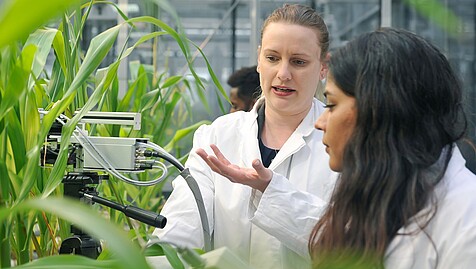
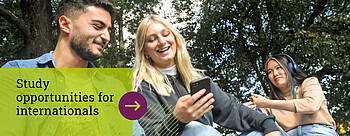
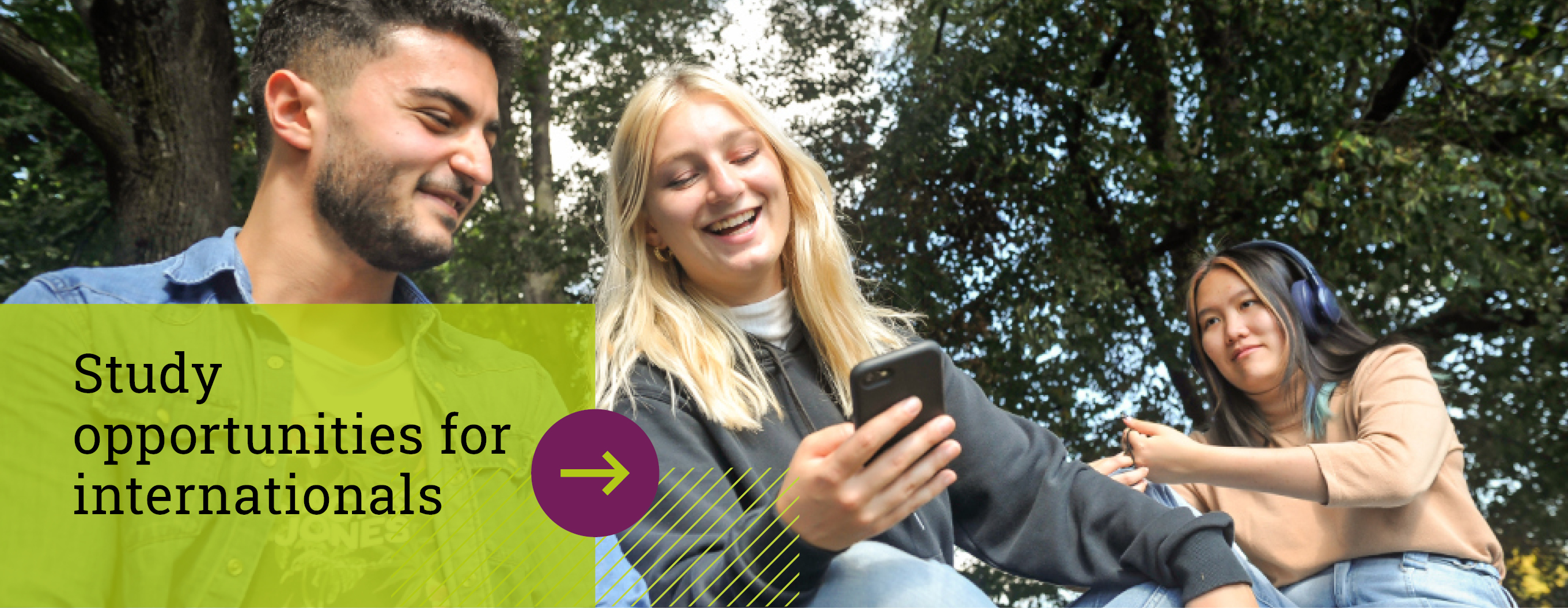


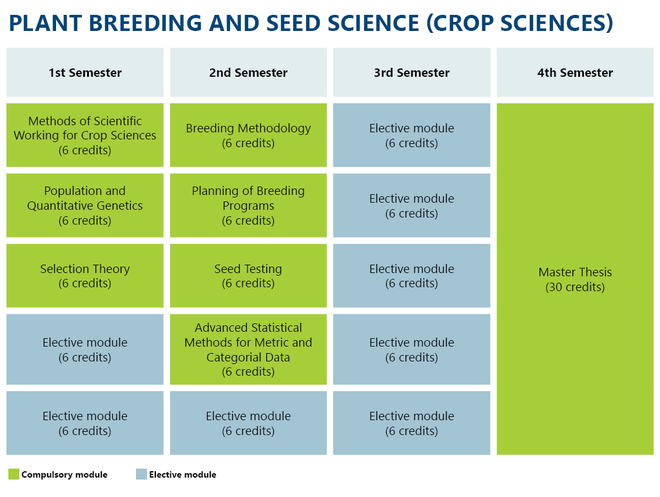
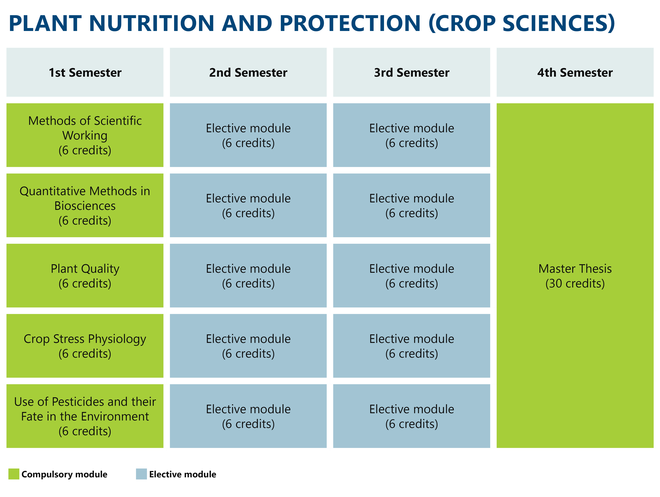




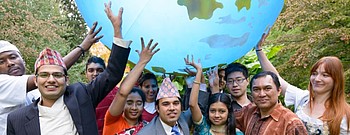
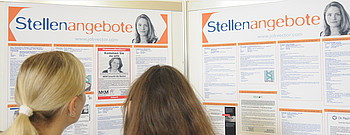
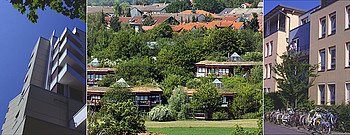
 Dr. Ivan Guzman Bustamante
Dr. Ivan Guzman Bustamante